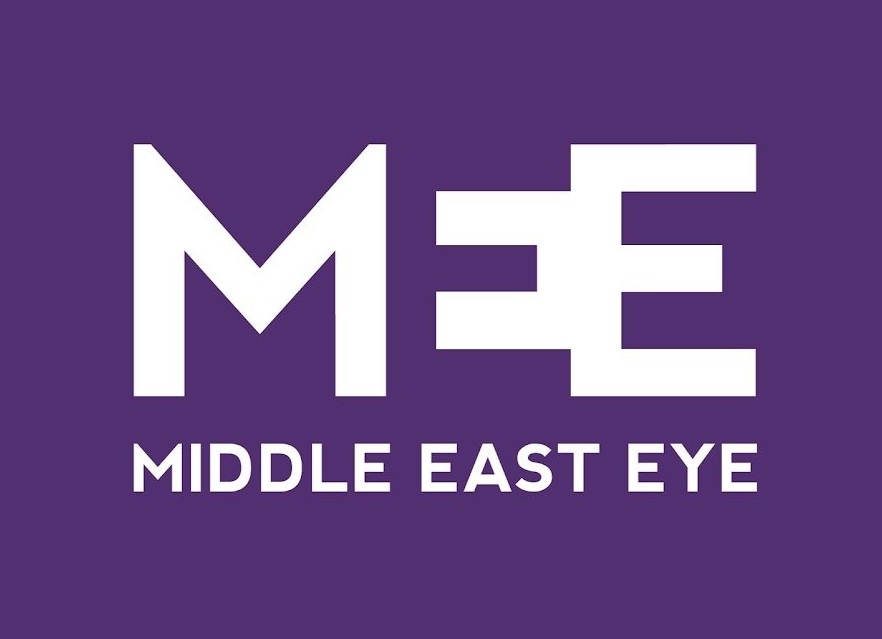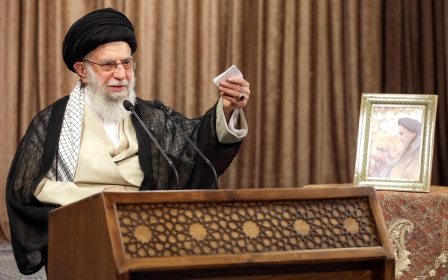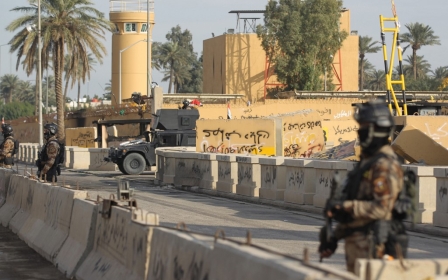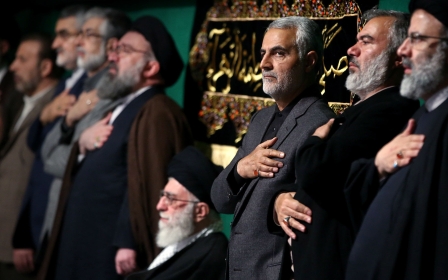Arrest warrant issued for MEE journalist Suadad al-Salhy in Iraq

An arrest warrant for Middle East Eye journalist Suadad al-Salhy has been issued in Iraq over the charge of “defamation”.
A judge at Tahqiq al-Karada Court issued the warrant on Thursday, requesting Salhy be taken to al-Alawiya police station.
No other details are provided and MEE is seeking more information from the court. According to the Iraqi penal code, Salhy could face up to one year in jail and a fine of 100 Iraqi dinars (US$0.08) if convicted of criminal defamation.
'Iraqi authorities should immediately drop the arrest warrant for al-Salhy and allow her to do her job freely and without fear of reprisal'
- Ignacio Miguel Delgado, CPJ
“The warrant for Suadad al-Salhy’s arrest is a sad reminder that Iraqi journalists are facing constant threats of government harassment and obstruction,” said Ignacio Miguel Delgado, Middle East and North Africa representative of the Committee to Protect Journalists.
“Press freedom entails allowing coverage of events of public interest and a wide range of viewpoints. Iraqi authorities should immediately drop the arrest warrant for al-Salhy and allow her to do her job freely and without fear of reprisal.”
New MEE newsletter: Jerusalem Dispatch
Sign up to get the latest insights and analysis on Israel-Palestine, alongside Turkey Unpacked and other MEE newsletters
Salhy is an experienced and prominent freelance journalist, and has covered Iraq’s politics and security for the New York Times, Reuters, Al Jazeera, Arab News and Newsweek, among others.
Iraq is a dangerous country for journalists to work in, and is ranked 162 out of 180 countries in Reporters Without Borders' (RSF) 2020 Press Freedom Index.
Salhy has faced risks and threats before. In 2007 she escaped an assassination attempt, while explosive devices were discovered at the entrance of her parents' home in 2014.
"Iraqi journalists risk their lives when they cover protests or investigate corruption," RSF said. "Coverage of political or religious figures still regarded as untouchable can lead to prosecution or to media bans."
Sabrina Bennoui, head of RSF’s Middle East desk, called on the Iraqi authorities to ensure Salhy is not detained and asked for the charges to be dropped.
“This journalist, who is known for her professionalism, just did her job. Revealing information, even sensitive information that annoys some people, is fundamental principle of the freedom to inform,” Bennoui said.
Middle East Eye delivers independent and unrivalled coverage and analysis of the Middle East, North Africa and beyond. To learn more about republishing this content and the associated fees, please fill out this form. More about MEE can be found here.




